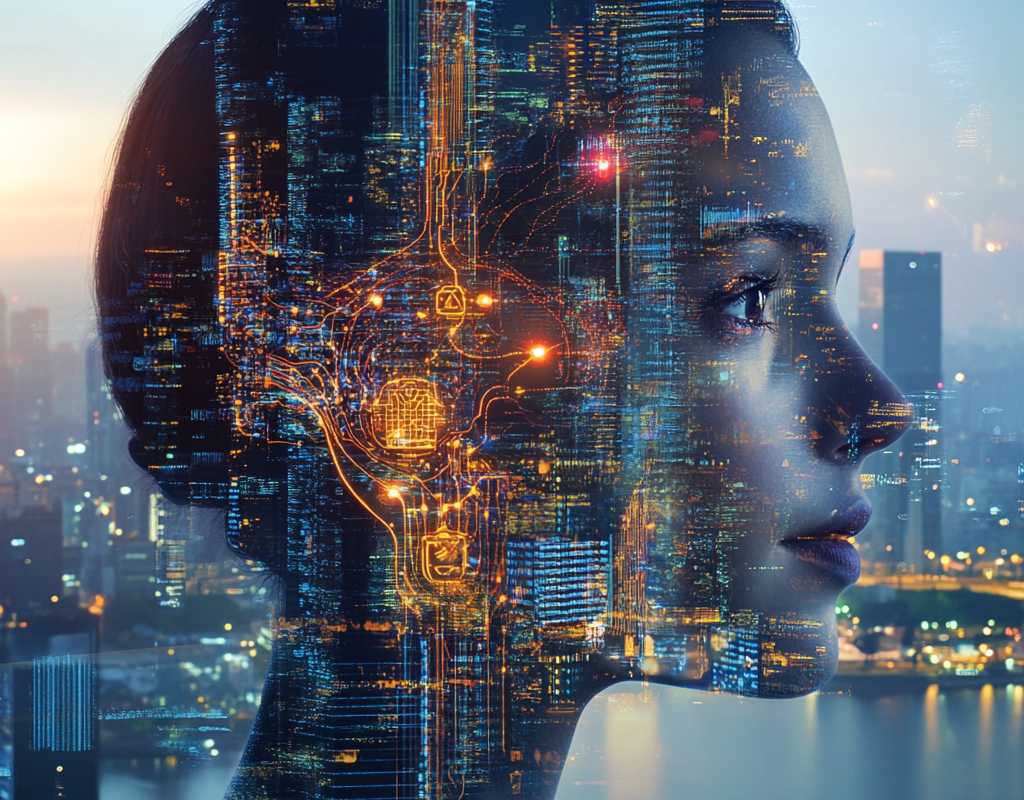Artificial Intelligence as a Tool for Achieving Sustainable Development Goals
Artificial intelligence (AI) has become a powerful tool for realizing the Sustainable Development Goals (SDGs) set by the UN. It can help solve global challenges such as poverty, hunger, inequality, climate change and sustainable resource management. Thanks to AI’s ability to process vast amounts of data, analyze it and make predictions, governments and organizations can make more informed and effective decisions. For example, machine learning can help uncover hidden relationships between economic, environmental and social factors, accelerating the search for solutions to complex problems.
In addition, AI is being actively used to monitor progress towards the SDGs. For example, satellite images and image analysis algorithms make it possible to assess the degree of environmental pollution, the extent of deforestation, or the dynamics of urban growth. Such data helps evaluate the effectiveness of implemented programs and adjust them if necessary. Thus, AI not only speeds up the implementation of goals, but also makes the process more transparent and manageable.
The role of AI in combating climate change
Artificial intelligence plays a key role in the fight against climate change by offering powerful tools for analysis and forecasting. Machine learning algorithms use data on temperature, carbon dioxide levels, wind speed and other parameters to build climate models. These models can predict climate change with high accuracy, helping governments and international organizations develop adaptation and mitigation strategies. For example, AI-based forecasts are used to prepare for extreme weather conditions such as hurricanes or droughts.
In addition, AI is being actively introduced into the energy sector. Smart grids powered by artificial intelligence help optimize energy distribution, reducing losses and increasing resource efficiency. For example, intelligent control systems can automatically adjust energy consumption depending on the time of day and demand. This not only reduces costs, but also minimizes your carbon footprint, an important step towards a sustainable future.
Using AI to Ensure Food Security
Ensuring food security is one of the most important tasks for which artificial intelligence is actively used. By analyzing data on weather conditions, soil conditions and plant growth, AI provides recommendations to farmers on how to increase yields and minimize risks. For example, algorithms predict sowing dates and the required amount of fertilizer or water, which helps to use resources more efficiently.
Another important application of AI is supply chain optimization. Systems based on artificial intelligence help predict demand for food, organize its transportation and storage, minimizing losses. For example, the use of AI makes it possible to timely identify problems with logistics or control the temperature in storage facilities, preventing food spoilage. These technologies are especially relevant in regions where food security is under threat.
Using AI to improve access to healthcare and education
In healthcare, artificial intelligence makes it possible to expand access to quality medical services, especially in remote regions. Telemedicine platforms and diagnostic algorithms help doctors make accurate diagnoses based on image analysis, test results and other data. For example, AI systems can detect early signs of cancer or cardiovascular disease, significantly increasing the chances of successful treatment. This reduces the burden on medical institutions and makes care available to more people.
In education, AI is helping to personalize learning by tailoring learning materials to each student’s skill level. AI-based platforms analyze student performance, identify weaknesses and suggest suitable assignments. This makes the learning process more effective and fun. In addition, such technologies expand access to education in countries with limited resources, allowing people to learn remotely and gain knowledge that was previously unavailable.
Ethical considerations for AI in sustainable development
Ethical issues are a key aspect of the implementation of artificial intelligence in sustainable development. Transparency of algorithms, data privacy, and fair distribution of benefits are just some of the challenges technology developers face. For example, algorithms may reflect biases embedded in the training data, which can lead to discrimination or increased social inequality. This is especially important in the context of the use of AI in healthcare, education and social policy.
To minimize the risks associated with ethical issues, it is necessary to develop global standards and rules for regulating AI. International cooperation in this area will help ensure fair and safe use of technology. In addition, it is important to involve representatives of different communities in the process of developing and implementing AI to take into account their interests and needs. In this way, it is possible to create conditions in which AI serves the interests of sustainable development, while maintaining a balance between progress and responsibility.
The future of AI in the context of global sustainability
Artificial intelligence plays a key role in the future of global sustainable development, offering innovative solutions to complex challenges.
- The active use of AI in industries such as energy, agriculture and healthcare is accelerating the adoption of technologies that improve quality of life and reduce the burden on the environment.
- Developing energy-efficient AI systems, such as low-power neural networks, helps minimize the negative environmental impact of technology.
- International collaboration in artificial intelligence ensures an equal distribution of technology and knowledge between developed and developing countries, promoting global sustainability.
- Education and training of specialists in the field of AI are becoming a priority, which allows not only to develop technologies, but also to effectively implement them to solve real-world problems.
- Ethical norms and standards govern the use of AI, preventing abuse and protecting human rights.
AI, if used responsibly, has the potential to significantly accelerate achievement of sustainable development goals. However, this requires an integrated approach that includes both technological and social aspects.
Questions and answers
Answer 1: AI processes big data, monitors progress and helps develop effective strategies in various areas such as ecology and social development.
Answer 2: It predicts climate change, optimizes energy systems and reduces carbon footprint through intelligent resource management.
Answer 3: AI analyzes weather and soil data, optimizes agricultural processes and improves food supply logistics.
Answer 4: In medicine, it enables accurate diagnosis and telemedicine, and in education, it personalizes learning and expands access to knowledge.
Answer 5: Issues include transparency of algorithms, data privacy, and preventing discrimination in the use of technology.



